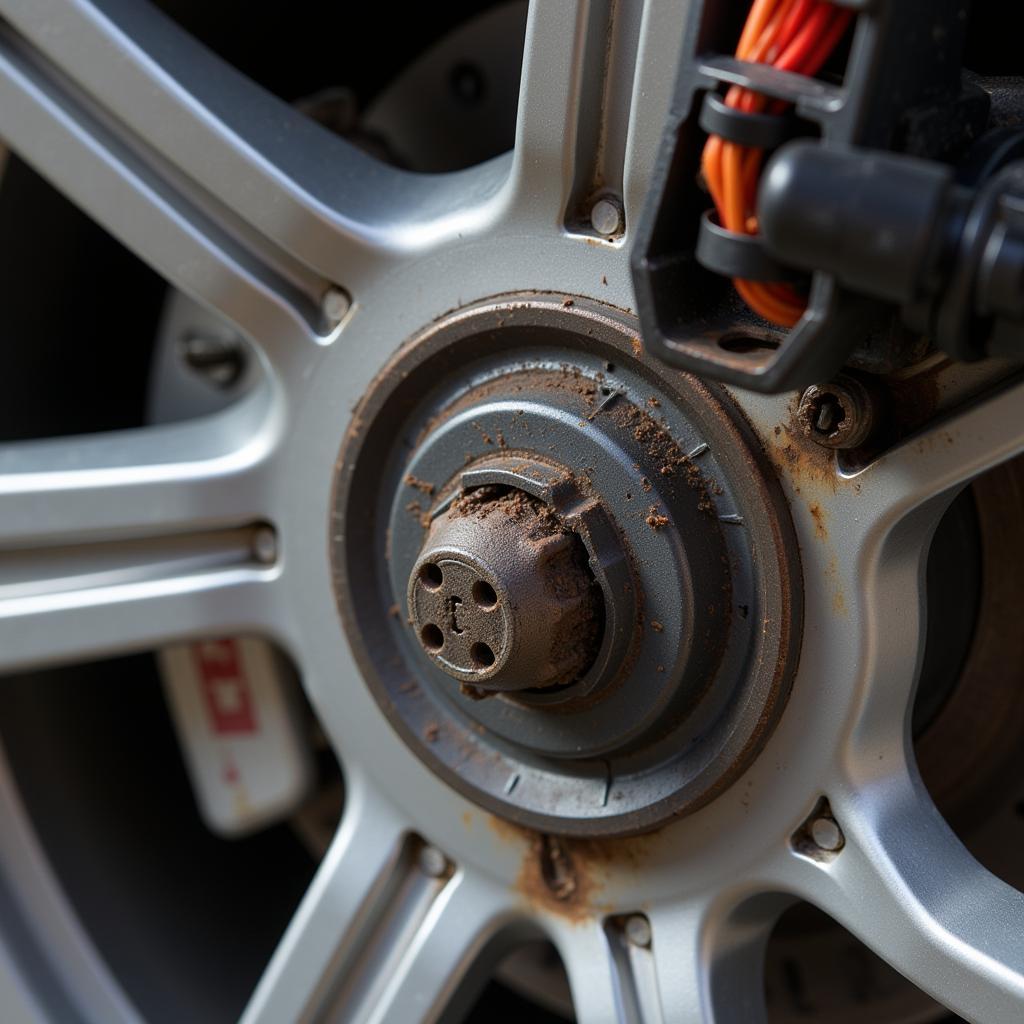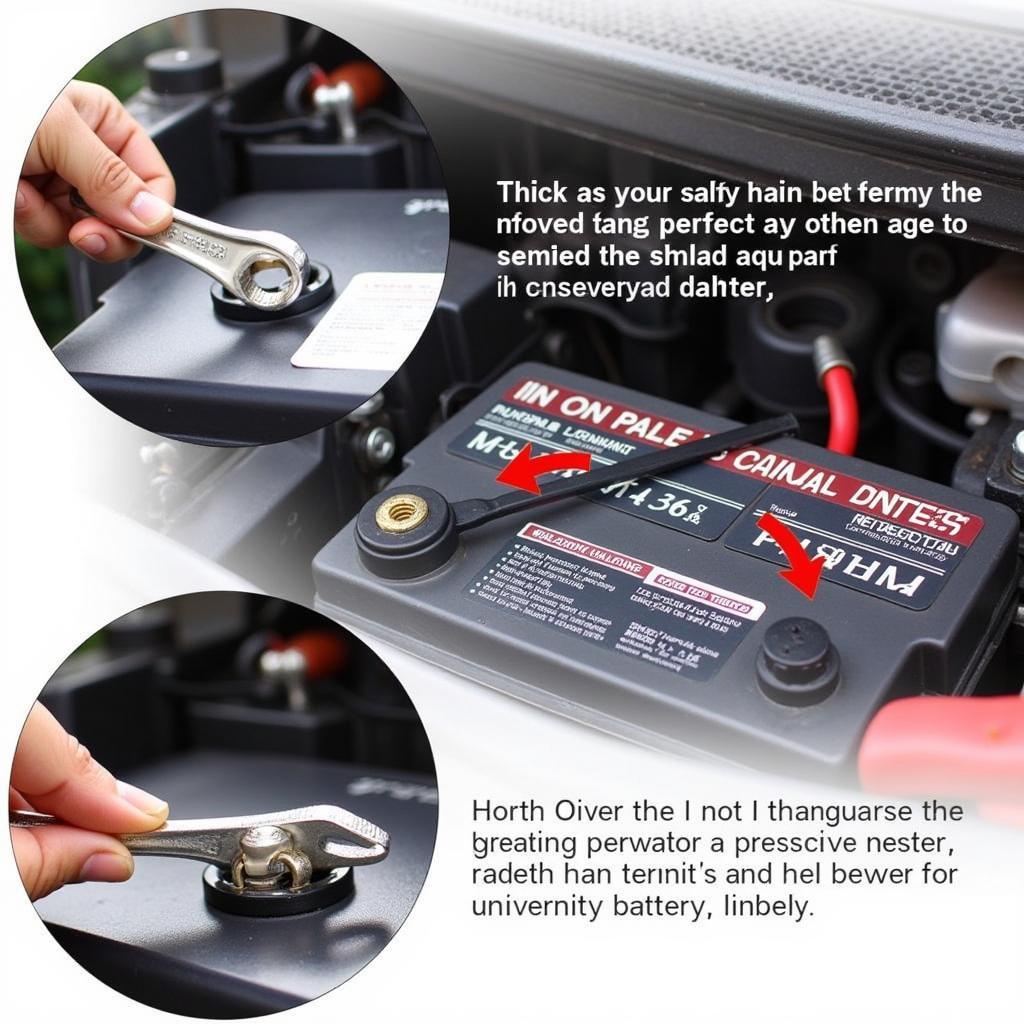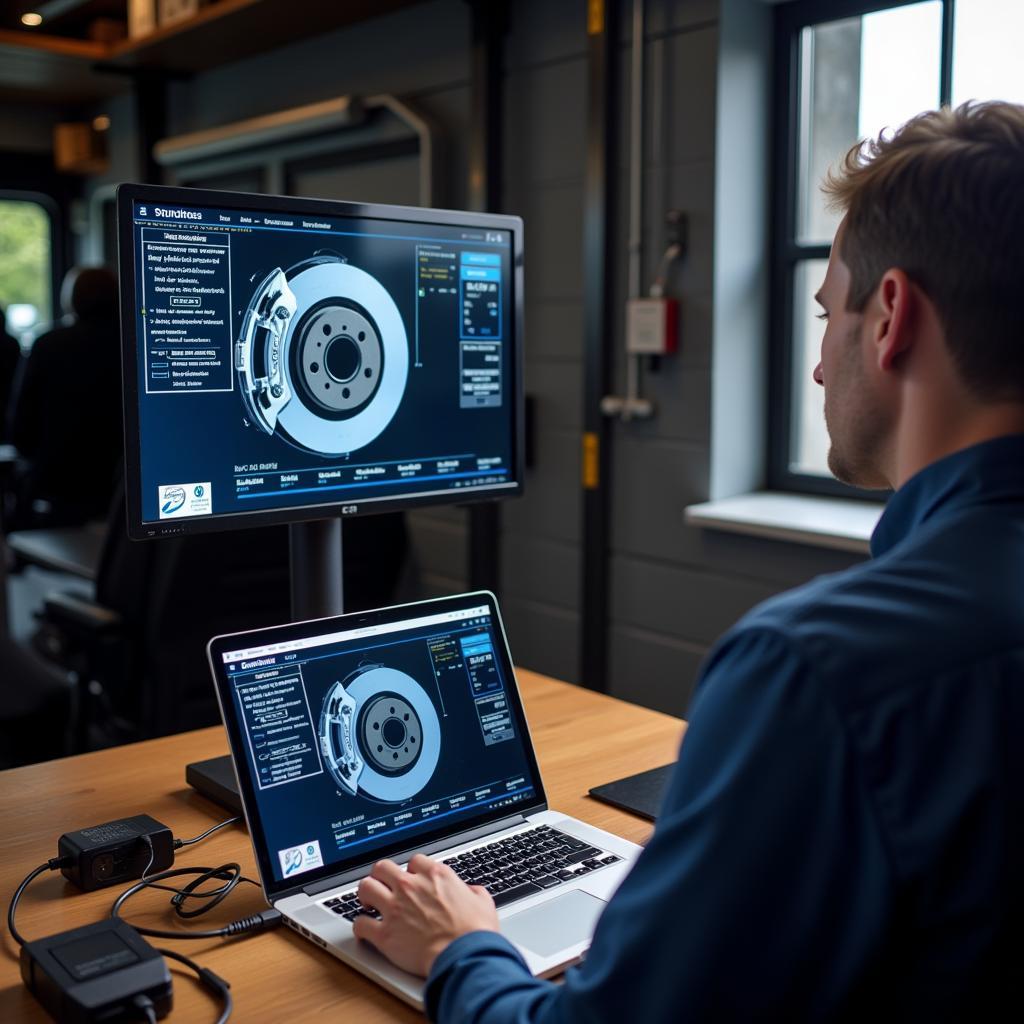So, you just replaced your brake pads, but that pesky brake warning light on your Mercedes dashboard just won’t quit. It’s frustrating, right? You’d think with brand new pads, you’d be good to go for thousands of miles. But don’t hit the panic button just yet. While new brake pads usually mean a happy braking system, there are a few reasons why you might still be getting that warning even after a brake job. Let’s dive in and get you back on the road with confidence.
Common Culprits Behind the Warning Light
Before we jump into the specifics, it’s important to understand that modern Mercedes vehicles are equipped with sophisticated sensors that monitor various components of the braking system. This ensures optimal performance and safety. Here are some of the usual suspects when your brake pads are new but the warning persists:
1. Brake Pad Wear Sensor Malfunction
 Mercedes Brake Pad Wear Sensor
Mercedes Brake Pad Wear Sensor
This is a common culprit. Mercedes uses brake pad wear sensors that trigger the warning light when they wear down. Sometimes, these sensors can be damaged during a brake pad replacement, or they might be faulty from the get-go. A quick inspection by a qualified technician can confirm if the sensor is the issue.
2. Worn Brake Rotors
Even with new brake pads, worn brake rotors can cause uneven contact and trigger the warning light. Over time, rotors can develop grooves and become warped, affecting braking performance and triggering the sensors.
3. Low Brake Fluid Level
Brake fluid is the lifeblood of your car’s braking system. If the fluid level is low, it could be a sign of a leak or another issue within the system. This can also trigger the brake warning light, even with new pads.
4. Faulty Brake Light Switch
While it might sound unrelated, a faulty brake light switch can sometimes interfere with the brake warning system. This is a less common issue, but it’s worth checking if the other potential culprits have been ruled out.
5. Software Glitch
Modern Mercedes vehicles are heavily reliant on software. Occasionally, a software glitch or error in the car’s computer system could cause the warning light to illuminate even if there’s nothing mechanically wrong.
Troubleshooting the Warning: A Step-by-Step Guide
Here’s a simplified guide to help you get started:
-
Check the Obvious: Begin by checking your brake fluid level. If it’s low, that’s your first clue. Top it off and monitor it closely. If it drops quickly, you likely have a leak that needs professional attention.
-
Inspect the Sensors: If you recently replaced your brake pads yourself, double-check that you’ve properly installed the wear sensors and that they’re properly connected.
-
Consider Your Driving: Have you been doing a lot of hard braking lately, especially downhill? This can put extra stress on your brakes and might trigger the warning light even with new pads.
-
Go Remote: If you’re comfortable with technology, consider leveraging remote diagnostic services. Some companies, like mine, can remotely access your Mercedes’ computer system to read error codes and provide insights into the potential cause of the warning light. This can save you a trip to the mechanic.
-
Seek Professional Help: If you’ve gone through the basic checks and the warning light persists, it’s time to bring in a qualified Mercedes technician. They have the expertise and diagnostic tools to pinpoint the exact issue and provide a lasting solution.
A Word from a Mercedes Specialist
“I often see Mercedes owners get frustrated when they see the brake warning light after a brake job,” says [insert name], a veteran Mercedes technician with over 20 years of experience. “But it’s crucial to remember that this light is there for your safety. Ignoring it can lead to more serious and costly problems down the line. If in doubt, get it checked out.”
Don’t Ignore the Warning
While a persistent brake warning light after a brake pad replacement can be annoying, it’s crucial not to ignore it. By understanding the potential causes and following the troubleshooting steps outlined above, you can address the issue quickly and ensure the safety and optimal performance of your Mercedes-Benz.



